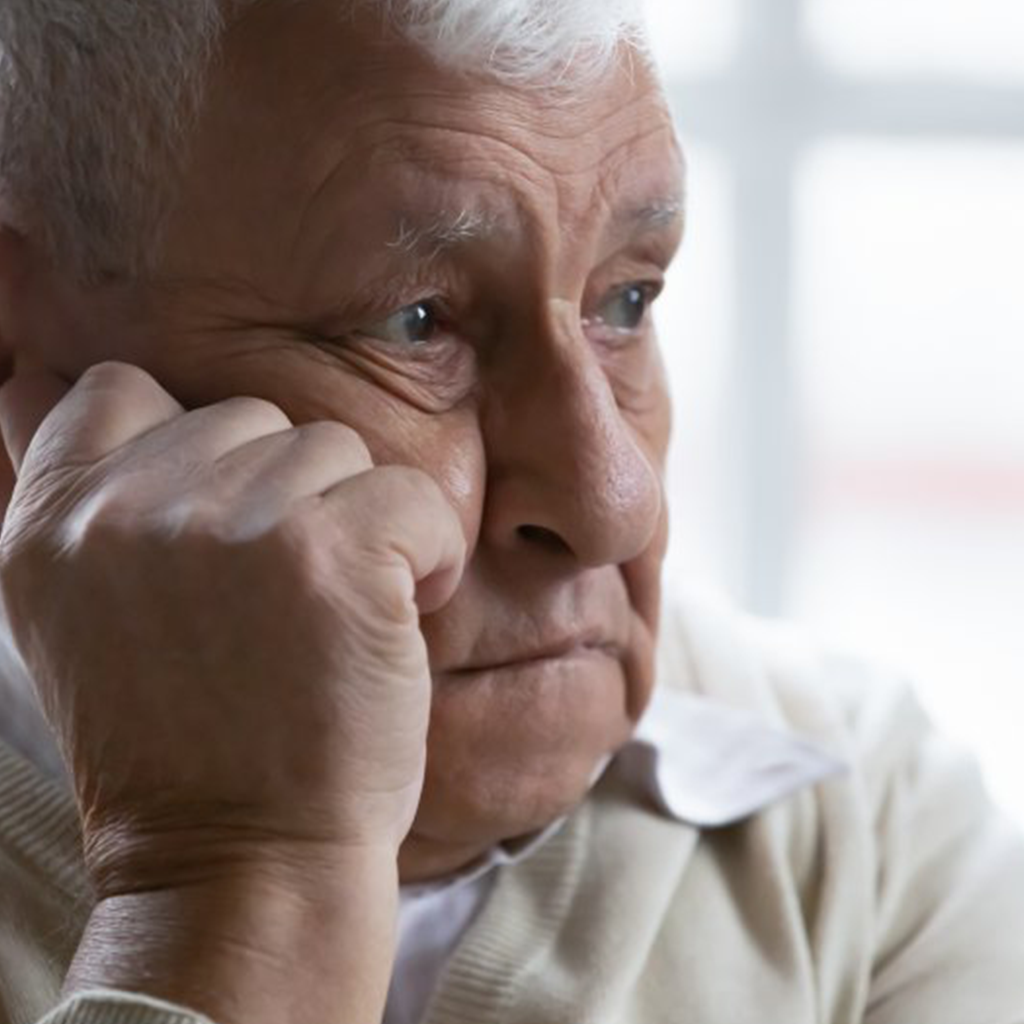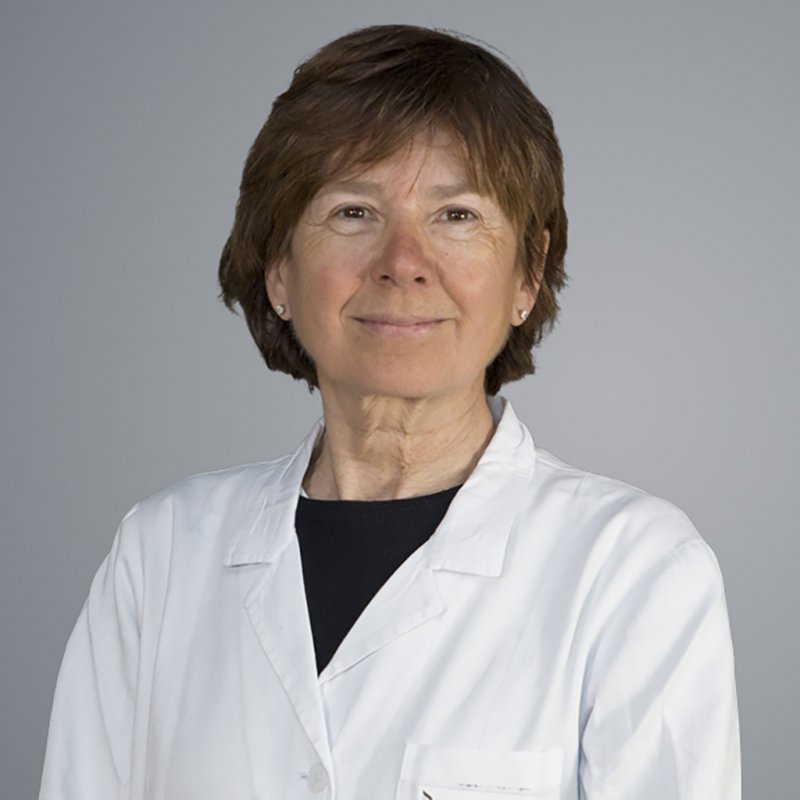Depression in the elderly: causes, symptoms and treatments

Publication date: 24-01-2023
Updated on: 28-04-2023
Topic: Mental health
Estimated reading time: 1 min
Article Author
Antonella Quaranta
Medical Editor
Cristina Anna Colombo
Editor and Translator
Viktoryia LuhakovaDifficulty in concentrating, memory decline, muscle aches, fears, insecurities, hypochondria, increased frequency of irritability, food refusal and self-isolation – it's not just sadness! Major depression in the elderly is a serious condition that needs to be addressed promptly with the most appropriate therapies.
With Professor Cristina Colombo, Chief of the Center for Mood Disorders a the Ospedale San Raffaele-Turro and Full Professor of Psychiatry at the Vita-Salute San Raffaele University, we find out how to treat this disease that affects about 27 percent of women and 20 percent of men over 65 yo every year.
What is depression in the elderly and why is it difficult to recognize?
It is a mood disorder that can become a disabling condition if not treated in time, but which the subject may not be able to recognize very often.
"The depressed elderly person often complains of physical symptoms (somatizations of the psychic state or worsening of known physical illnesses) and cognitive difficulties: he or she minimizes the sadness he or she feels, thinking that it is “normal” after a certain age or out of shame to experience this feeling perhaps after a lifetime of gratifications (when he or she worked and was not “just a retiree,” etc.)," explains Professor Cristina Colombo.
Symptoms and alarm bells of depression in the elderly
"The most obvious symptoms of the presence of major depression in the elderly are appetite and digestive disorders. Other frequent symptoms are:
- insomnia;
- fatigue;
- aches and pains;
- attention and memory problems;
- anxiety;
- tendency to isolate oneself.
A strong red flag is suicidal ideation: this symptom is more difficult to investigate and requires a high level of trust between doctor and patient for it to be treated."
Possible triggers
Depression has an uncertain origin, and the cause(s) vary from subject to subject. Often the cause is multifactorial. Let's see with the psychiatrist what the possible triggers are.
"In the bio-psycho-social perspective, familiarity is important: during the first psychiatric examination, it is useful to report to the specialist, as well as previously to the treating physician, whether there have been other direct family members (grandparents, parents, etc.) in the patient's family in the past with a diagnosis of depression or other disorders in the area of mood disorders.
Possible causes of depression in the elderly include stressful events and chronic illness. In addition, among the causes of this condition are the changes one typically experiences from age 65 onward, such as: retirement, financial worries, family bereavement, loss of autonomy, memory problems, and other events.
These life events have a destabilizing effect on the patient's mental and physical health," explains Professor Colombo.
Diagnosis: the role of family members and the primary care physician in identifying this condition
"The patient avoids being examined out of shame or continually looks for a “physical” cause, coming to the psychiatrist late. Typically, women feel guilt because they are sick, and men feel, precisely, shame and thus great difficulty in asking for help because of fear of others' judgment.
We need to listen with empathy to the patient and remember that mental health is as important as physical health, even in old age."
Clinical diagnosis by psychiatrist
"The first diagnostic tool is the patient's clinical, family and general history, which is collected during the interview of the first psychiatric examination.
Following the examination to refine the diagnosis, a Magnetic Resonance Imaging (MRI) or CT/CT scan of the brain may be prescribed by the specialist. These diagnostic tests will delve into age-related physiologic changes or signs of atrophy or micro-vasculopathy, which are frequent in age-onset depression (from age 65 or even earlier, from age 50).
Neuropsychological tests investigate current cognitive function and can be repeated over time as monitoring."
Acceptance of diagnosis and treatment
"Communication between doctor and patient in the acceptance of the diagnosis and adherence to therapy (compliance, etc.) both by patients and their families and caregivers is crucial," explains the psychiatrist.
"Elderly people often think they are too old to care, that they are “weak”: this risks having their symptoms become chronic, negatively affecting their health and independence. Therefore, during the psychiatric examination we must convey diagnosis, treatment and prognosis with right optimism.
It takes a few weeks of therapy to see the effects, and then it needs to be continued again as maintenance: the patient and caregivers need to be aware of these treatment timelines so that regularity in compliance and follow-up visits are ensured."
How to treat depression in the elderly?
Several strategies and therapies are available for the treatment of this condition that affects more and more people over 65. The most innovative ones are already available at Ospedale San Raffaele Turro: ranging from drug therapy and psychotherapy to innovative transcranial stimulation techniques for some specific cases.
Psychiatric care: between pharmacology, chronotherapy and transcranial stimulation
"We prefer antidepressant drugs with fewer drug-drug interactions (of first choice are serotonin reuptake inhibitors): the elderly often take many medications for several concomitant conditions. Through these therapies, 50%-85% recovery is achieved, although medication alone is not always enough to restore the depressed elderly patient's mental and physical balance.
In some specific cases, we propose chronotherapies such as, for example, Light Therapy: these techniques act on the biological clock of the human being by resetting the systems involved in depressive symptoms.
Somatic techniques are also proposed such as, for example, Transcranial Magnetic Stimulation or Transcranial Direct Current Stimulation: techniques that go to “wake up” dormant brain areas in order to enhance the patient's response to medication.
In severe or highly resistant cases, Electro Convulsive Therapy is well tolerated and gives good results (60-80%). In our hospital, for this therapy, we have a dedicated team that follows the depressed patient all the way through the investigation and treatment," the psychiatrist illustrates.
Psychotherapeutic care
"Often in the elderly, cognitive and relational patterns are more difficult to change, but psychological support can be proposed to better cope with illness and life events, especially in mild cases or those contraindicated to medication, perhaps coupled with neuro-cognitive training exercises (e.g., remembering the shopping list, doing crossword puzzles or other puzzle games, reading books with many characters, etc.)."
Diet and lifestyle
"Loss of appetite and weight or disordered eating takes its toll on the physique, setting up a vicious cycle: a balanced diet can help regain energy and support mood.
Movement gives benefits on physical state, depressive symptoms, and self-esteem. In addition, we encourage the patient to resume sociality and interests that help keep cognitive faculties trained," Dr. Colombo elaborates.
Depression versus dementia: what links them and what differentiates them?
"In elderly depression, the contours between phases of illness and well-being, typical of Major Depression, are more blurred, with risk of chronicity of “minor” but disabling depressive states," explains Professor Colombo.
In dementia, there is progressive cognitive decline, with variable mood changes.
"In between, these influence each other: depression is a risk factor for dementia, and in the elderly with dementia it is more common to observe depression as well.
For these reasons, it is important for the patient, or more frequently for the cohabiting family member and/or professional caregiver, to catch the first signs of mood changes and seek consultation with the family physician and then the psychiatry specialist if the mood decline and other symptoms persist for more than two weeks."
Depression and anxiety in the elderly: what links them and what distinguishes them?
"The comorbidity of depression and anxiety is very high in general, even in the elderly. Especially the elderly, depression is anxious with fears, insecurities, hypochondria, but the reverse can also happen: if the patient develops enduring anxiety, he or she may progress to depression secondary to the depletion of inner resources, which is why it is important to treat it early," the expert concludes.